In an increasingly digital business environment, efficient and secure communication is key to increasing productivity and competitiveness. For companies focused on enhancing data security and privacy,On-premise groupwareplays an important role.
The main advantages of on-premise systems are:Operating in our own data centers reduces the risk of information leaks and allows us to adapt to strict regulatory standards and unique security requirements. It also offers significant benefits in terms of customization and cost efficiency.
This guide provides a detailed explanation of the process of selecting, implementing, and operating on-premises groupware, providing essential insight and practical advice when considering implementation.
Groupware basics
What is groupware?
Groupware refers to software or platforms that facilitate communication, collaboration, and information sharing within a business or organization.
This tool enables efficient communication between team members and supports various business processes such as project management, scheduling, and document sharing. Groupware has become especially important in today's business environment, where remote work and distributed teams are commonplace.

Role as a communication tool
The most basic function of groupware is to facilitate communication within a team.chat tool, email, forum,Web Conference This makes it possible to share information and make decisions in real time. These tools increase transparency and speed communication between teams.
Schedule management and task management
In groupware,Schedule Sharing YataTask Management Features make it easy to manage schedules for individuals and teams. This allows you to see work progress at a glance and plan to complete tasks on time.
Depending on the product, there may also be a function for reserving conference rooms and equipment linked to schedules, or a function for automatically issuing URLs for web conferences.
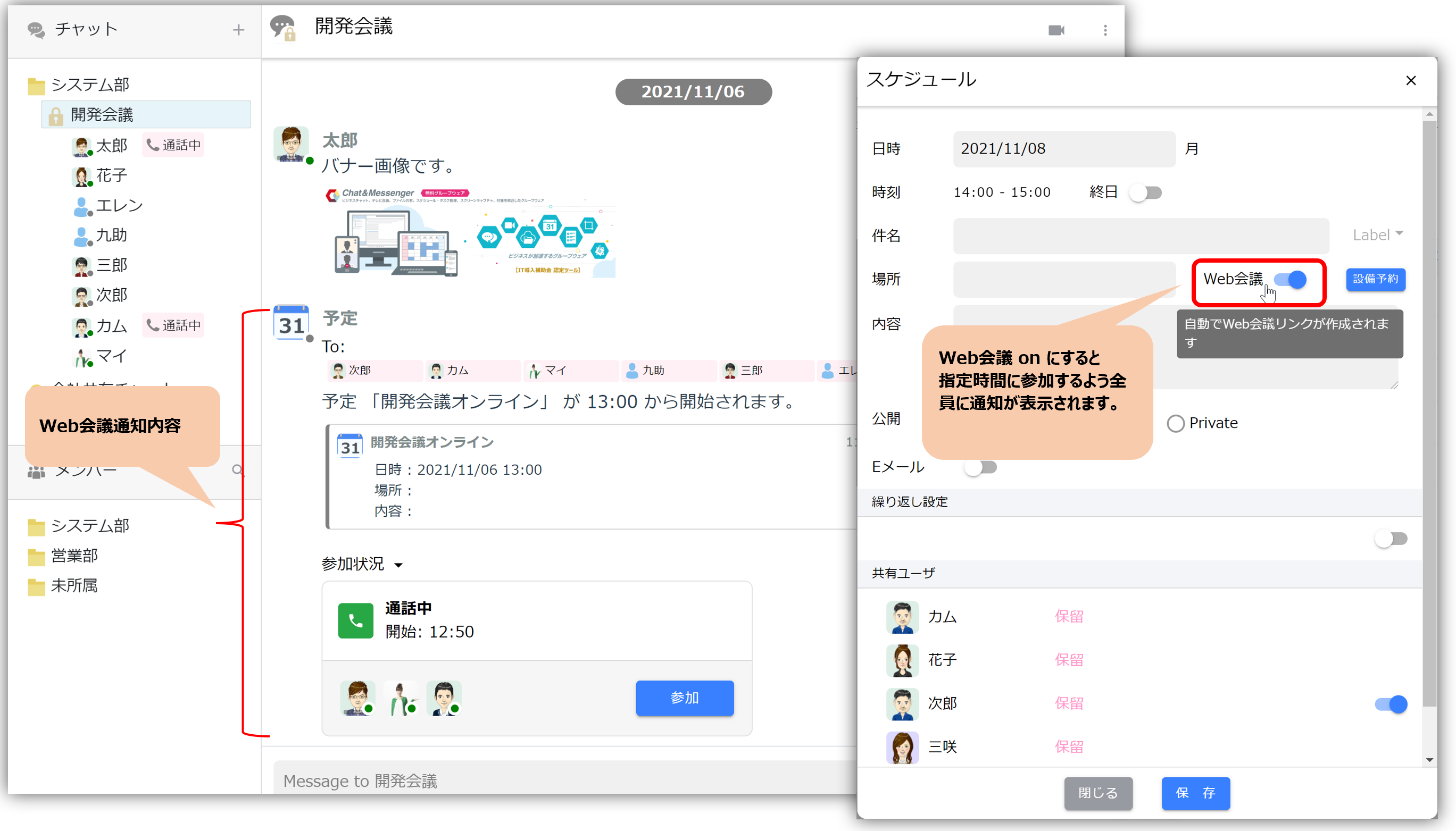
File sharing and document management
File sharing and document management Features are important to ensure team members have access to the information they need at any time. Streamline your work and ensure information security by providing document version control and a single point of access to information.
Workflow Management
Workflow Management Features enable automation and standardization of business processes. This simplifies things like approval processes and document routing, making operations more transparent and efficient.
Bulletin board and portal
The bulletin board feature provides a platform for sharing important announcements and information within your organization. Portal functionality, on the other hand, centralizes access to the information you need and provides users with a personalized experience.
By centrally managing information such as company rules, office usage guides, document formats, etc., you can save time searching for information and improve work efficiency.
attendance management
The attendance management function improves the efficiency of human resources management by tracking employee working hours, vacation, and attendance status. Through this function, transparency of working hours is maintained, allowing for appropriate staffing and labor management.
Difference between on-premises and cloud
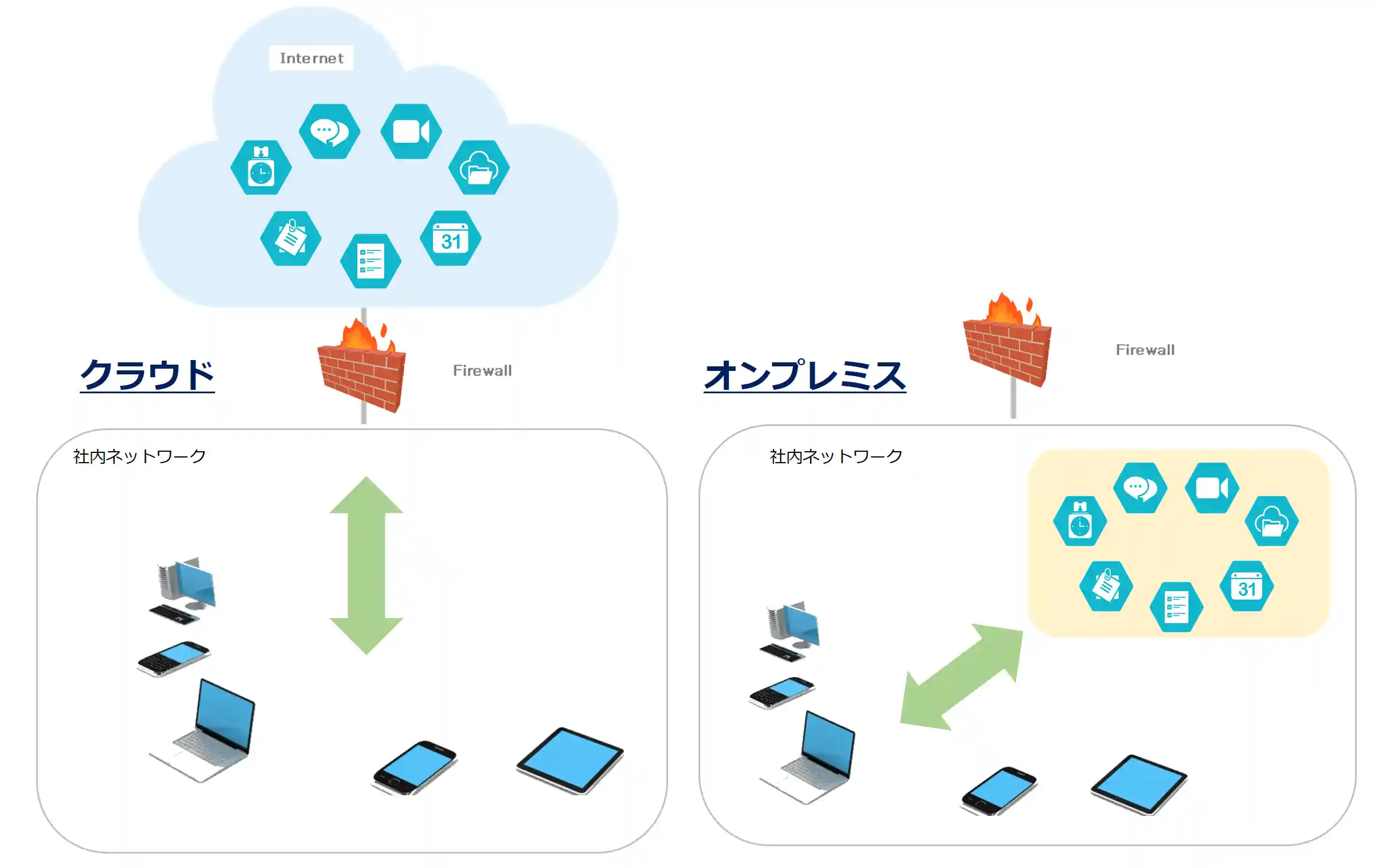
On-premises is a system in which a company operates its own servers and software.In this method, the information system is kept within the company network and access from outside is restricted. This allows businesses to maintain complete control and security over their systems.
in contrast,Cloud services refer to the form in which necessary IT services are used via the Internet.. Businesses do not own the hardware or software; they use resources provided by service providers. This method provides flexibility and cost savings, reducing the investment and maintenance burden on physical infrastructure.
On-premises offers security and customization, while cloud offers scalability and ease of operation. It is important to understand these differences so that businesses can make the best choice based on their needs.
Advantages of On-Premise
Because on-premises systems are built in-house, the system is flexible and easy to customize, and it is easy to integrate with your own systems. Additionally, since the system operates within the company's own network, it has the advantage of being highly secure.
Recent Groupware Demand for cloud-type products is growing, but there are issues at the staff level where even confidential and personal information that is not disclosed to third parties is easily uploaded to the cloud and shared internally and externally. . There are many needs to operate groupware on-premises in a company-only environment in consideration of personal information leaks, insider trading issues, compliance, industrial espionage, and unexpected risks.
Disadvantages of on-premise
The disadvantages of on-premise are generally the following
- Initial implementation cost is high
- IT skills (infrastructure, web server, DB server, etc.) required
- When connecting to bases or teleworking VPN Requires dedicated infrastructure such as
- Need to respond to failures in-house.
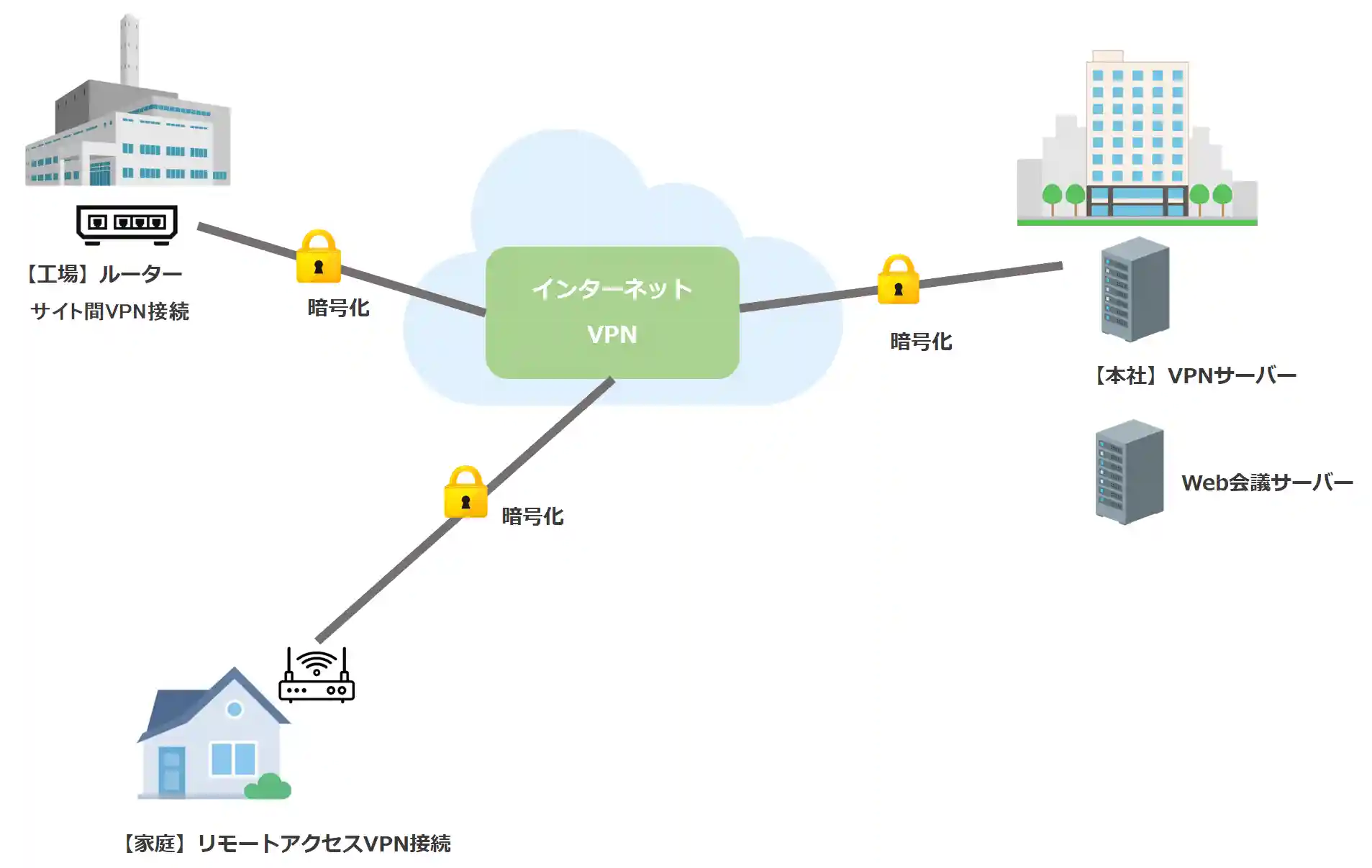
Recently, the Ministry of Internal Affairs and Communications has been recommending groupware suitable for telework as part of work style reform. In addition, as the convenience of using mobile devices has improved, the need for cloud computing has increased, and there are very few on-premises groupware products that are compatible with telework and mobile devices.
On-Premises vs. Cloud: Which Should You Choose?
When companies introduce groupware, they have two main options: on-premise and cloud. Compare the features, advantages and disadvantages of each to choose the best solution for your company.
Comparison table between on-premise and cloud-based systems
| item | On-premise | Cloud-based |
|---|---|---|
| Initial cost | Expensive (server license required) | Low (subscription required) |
| Operational costs | Low (only fixed costs due to in-house operation) | Long-term increase (costs increase in proportion to the increase in users) |
| Security | Strong (can be managed within the company, external access restricted) | Dependent on cloud service providers (advanced security measures in place, but limited data management authority) |
| Data Management | Fully manageable (data is contained within the company network) | Third-party management (data held by cloud provider) |
| Speed of implementation | Slow (needs to be designed and built) | Fast (available immediately after account issuance) |
| Customizability | High (Can be customized to suit business needs) | Low (only available features) |
| Scalability | Limited (expansion requires additional equipment and costs) | Flexible (user numbers and storage can be expanded instantly) |
| Dependent on Internet connection | unnecessary | need |
Which one should you choose?
✅ Companies that are suitable for on-premise systems
- Industries that require high levels of security and regulatory compliance (finance, medical, government, etc.)
- Companies that want to customize the system to suit their unique business processes
- Large companies looking to reduce costs in the long term
✅ Companies that are suitable for cloud-based systems
- Companies that prioritize speed of implementation
- Companies that do not want to allocate resources to server management and maintenance
- Companies that want to start small and scale flexibly
Hybrid operation option
Recently, the number of "hybrid operations that combine cloud and on-premise systems" has been increasing. For example,Confidential information on-premise, general business on cloudBy using them in this way, you can make the most of the benefits of each.
On-premises groupware integration strategy
Even in today's world where cloud computing is widely used, many companies are still concerned about security and customization flexibility.Core business systems may be operated on-premises.Choosing on-premises is especially important when sensitive information or industry-specific regulations are involved.
Considering this situation,On-premises groupware integration is very efficient from a data consistency and security perspective.
fast and secureRealization of data linkage
High-speed and secure API linkage can be achieved between on-premises groupware and existing systems (core business systems, etc.) using the internal network within the intranet. This enables rapid sharing of information and supports real-time decision making. In addition, central data management increases the consistency of information, greatly contributing to streamlining business processes.
Enhanced security
On-premises data management plays a critical role in protecting a company's valuable information from external threats. Data security is also a top priority when it comes to integration. Strengthen security and protect against data leaks and unauthorized access through firewalls, encryption technology, and strict control of access privileges.
Flexible customization possibilities
On-premises groupware allows for a higher degree of customization than cloud-based solutions. Companies can customize it to meet their specific needs and create efficient business flows. This directly contributes to increased employee productivity and produces results that enhance the overall performance of the organization.
As such, on-premises groupware integration is a key element in driving a company's digital transformation and increasing its competitiveness through data consistency, increased security, and flexible customization possibilities. By providing efficient and secure communication tools, companies will be able to achieve smoother and more effective business operations.
[Comparison table] Major groupware products and on-premises compatibility status
The following comparison table lists major groupware products in order of whether they support on-premises (closed network) and price.
| product name | Main features | On-premise correspondence | Free plan | On-premise pricing |
|---|---|---|---|---|
| Chat&Messenger | (Internet) chat Web Conference Schedule Task Management document management Equipment reservation attendance management | 〇 | Yes | 20 users From 36,000 yen |
| Group Session | Schedule BBS Facility Reservations file sharing Task Management survey | 〇 | Yes | Basic 0 yen as support cost 10 users 54,000 yen ~ |
| desknet's NEO | Mail Schedule BBS Facility Reservations file sharing Task Management survey | 〇 | Nothing | 5 users From 75,000 yen |
| Cybozu Garoon | Mail Schedule BBS Facility Reservations file sharing Task Management survey | 〇 | Nothing | 50 users From 600,000 yen |
| R-GROUP | Timeline Schedule BBS Time-card free calls | incompatible | – | – |
| e-Broad office | Schedule message memo Time-card To-do list BBS file sharing | incompatible | – | – |
| Zoho Connect | (Internet) chat vote Group creation Schedule file sharing voice call video call | incompatible | – | – |
| Circle square | (Internet) chat Schedule BBS album file sharing | incompatible | – | – |
| GRIDY Groupware | Schedule Equipment reservation Time-card To-do list file sharing Creating minutes | incompatible | – | – |
| enclo | (Internet) chat Group creation file sharing free memo Schedule | incompatible | – | – |
| Lark | (Internet) chat automatic translation work space file sharing voice call video conference | incompatible | – | – |
| LINE WORKS | voice call video call screen sharing BBS calender (machine for flattening things) | incompatible | – | – |
How to choose an on-premises groupware product
In particular, when choosing an on-premises groupware system, it is important to consider the following points:
1. Evaluation criteria for system selection
When choosing an on-premise groupware product, comprehensively evaluate its functionality, smartphone compatibility, performance, security, cost, support system, and ease of use of the user interface. In addition, many groupware products are equipped with web conferencing and task management, so it is important to choose the most appropriate system according to your company's specific needs and goals.
2. Access control and audit logs
From a security perspective, check whether user access control functions and audit log recording are possible. Audit logs allow you to track system access and operation records, allowing you to take immediate action in the event of suspicious activity or security violations. This reduces security risks, so make sure your groupware product has these features.
3. Active Directory linkage
Check whether OS password authentication and single sign-on (SSO) are possible by linking with Active Directory. This simplifies user management and increases usability while increasing security. Please investigate in advance to what level Active Directory linkage is possible with the groupware product you are considering.
The following is a reference for the Active Directory linkage achieved by Chat&Messenger.

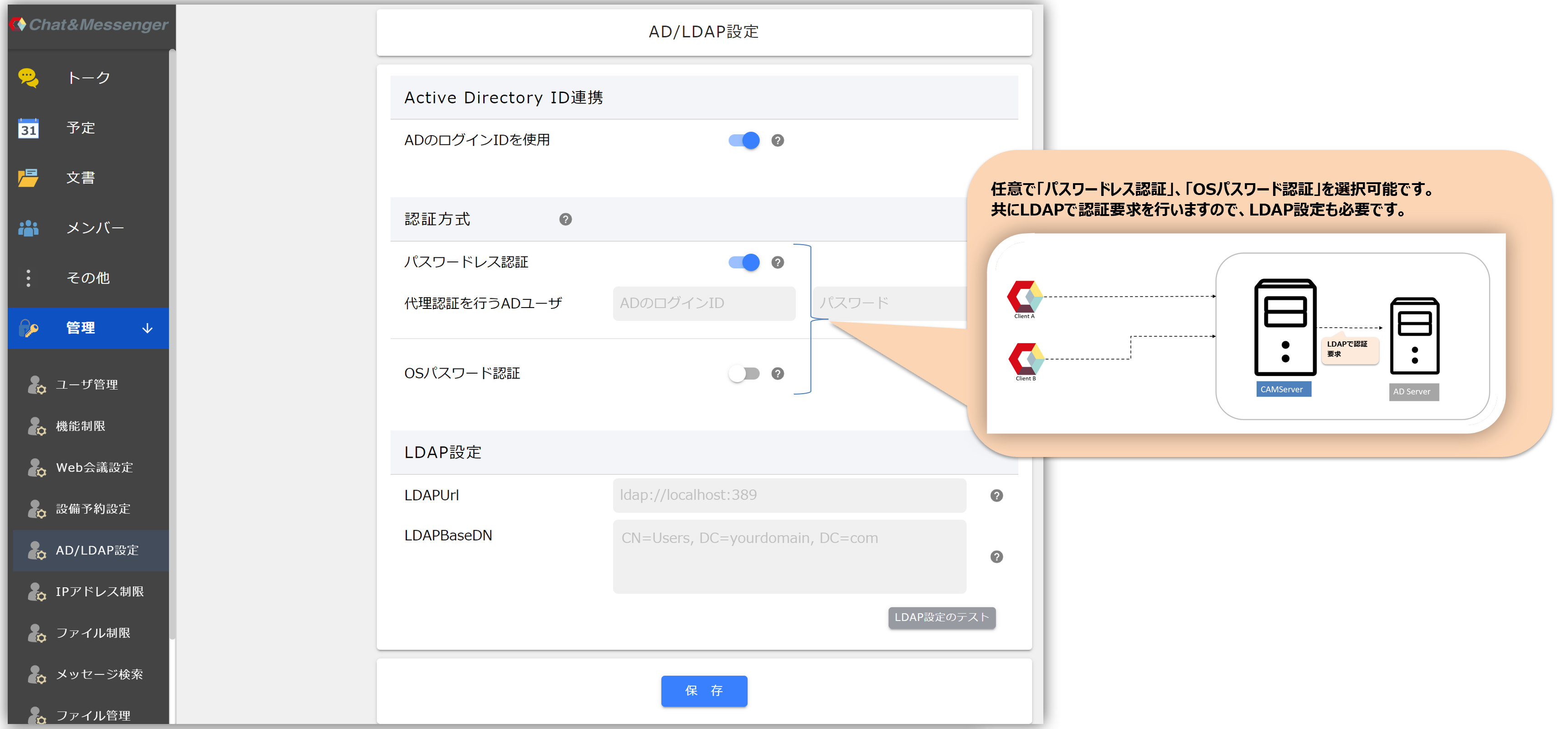
4. Data backup method
To maintain system stability, it is essential to have regular data backups in place. Make sure your groupware product has a good backup strategy built in so you can quickly recover your data in the event of a disaster or system failure.
5. Compatible with redundancy and load balancing
To increase system reliability, consider whether a redundant server configuration is possible. This ensures that even if one server fails, another server can act as a replacement and prevent service interruption. Redundant configurations are required when the number of users reaches several thousand users, so please check whether the groupware product you are considering can support this.

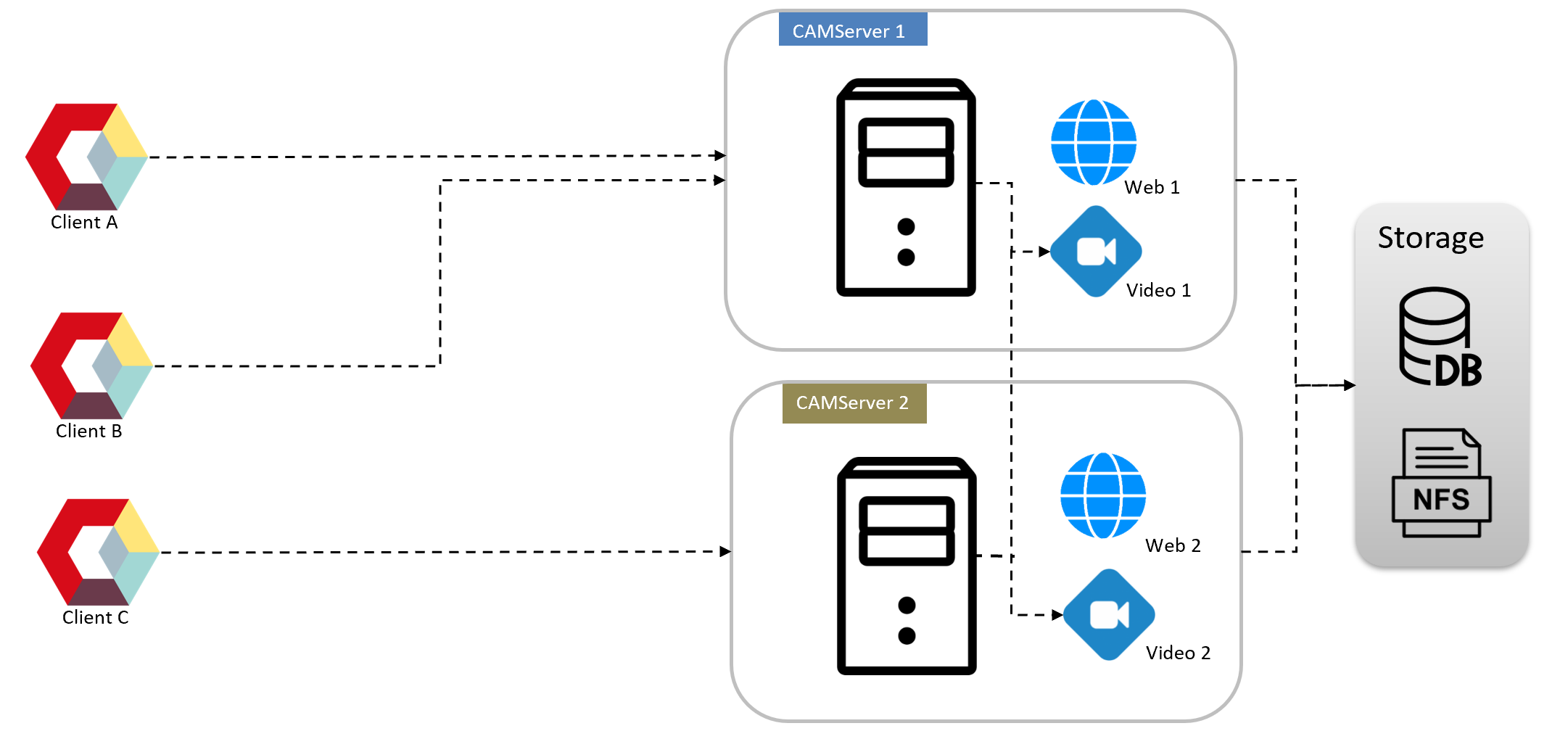
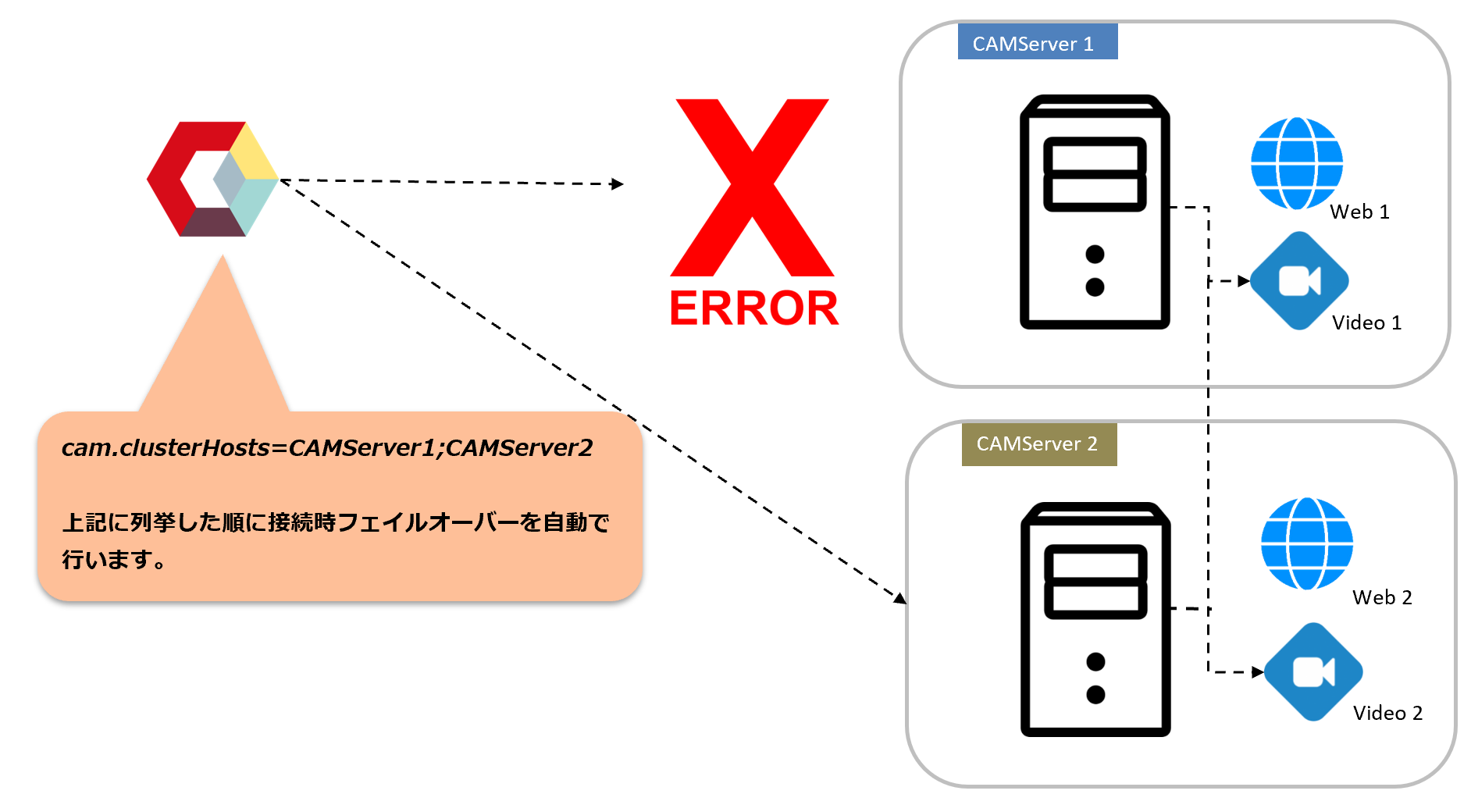
6. Customization and extensions
Another important factor is whether the system can be customized and expanded to meet a company's specific needs. It is desirable to choose a system that can flexibly respond to future business growth and changes.
When selecting an on-premises groupware product, it's important to consider these factors holistically and choose the product that best meets your company's current and future needs. Choosing the right system can make your business more efficient and more secure.
Introduction of recommended products for on-premises groupware

Chat&Messenger teeth,Business Chat , ,Web Conference, ,file sharing, ,Schedule, ,Conference Room ReservationsIt is a groupware that integrates peripheral tools such as easy to use, and is compatible with both on-premises and cloud.
Because all data can be managed within the organization, it is possible to use environments with Internet connection regulations (closed networks) and highly confidential data (such as government-related, major companies, banks, IT, universities, hospitals, prefectural offices, city halls, public institutions, etc.) It has been implemented in many organizations that handle data that cannot be stored on the cloud.
Even on-premises, Chat&Messenger is easy to install, optimized to handle over 5000 users, and requires no IT skills. In terms of price, it is also overwhelmingly cheaper than other companies' clouds, and the general disadvantages of on-premises do not apply.
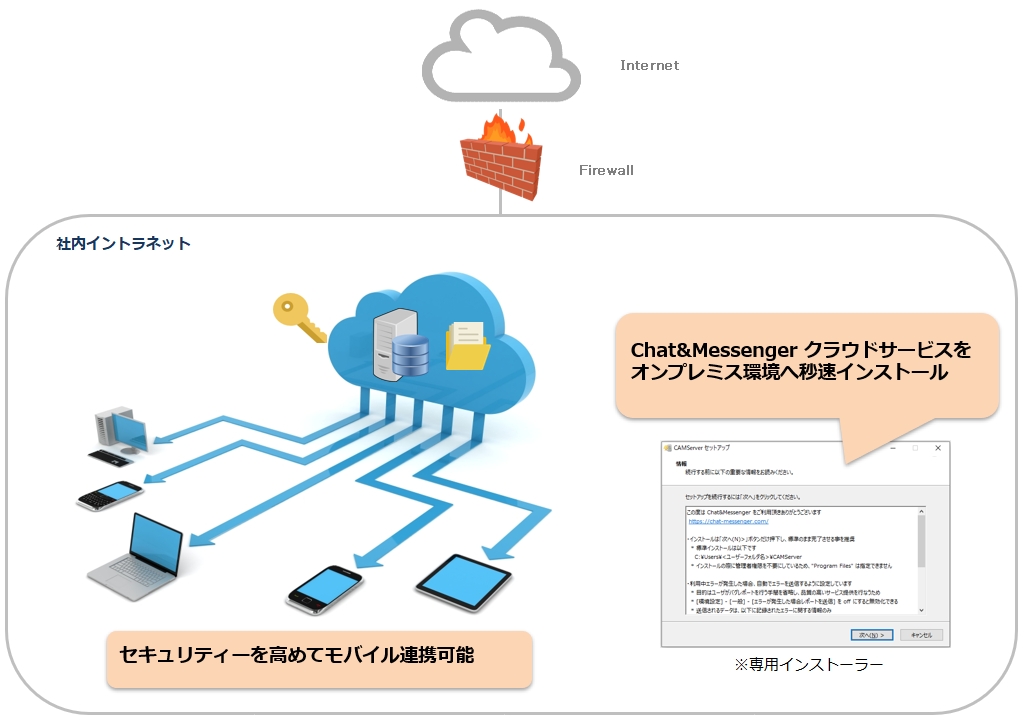
In addition, it is characterized by the following functions, which are highly difficult and challenging when building on-premises systems.
- Audit messages and file attachments
- SSL certificate compatible
- Compatible with redundancy and load balancing
- Active Directory Linkage
- Linkage with on-premises email server
- Differential high-speed backup
- Access control and audit log support
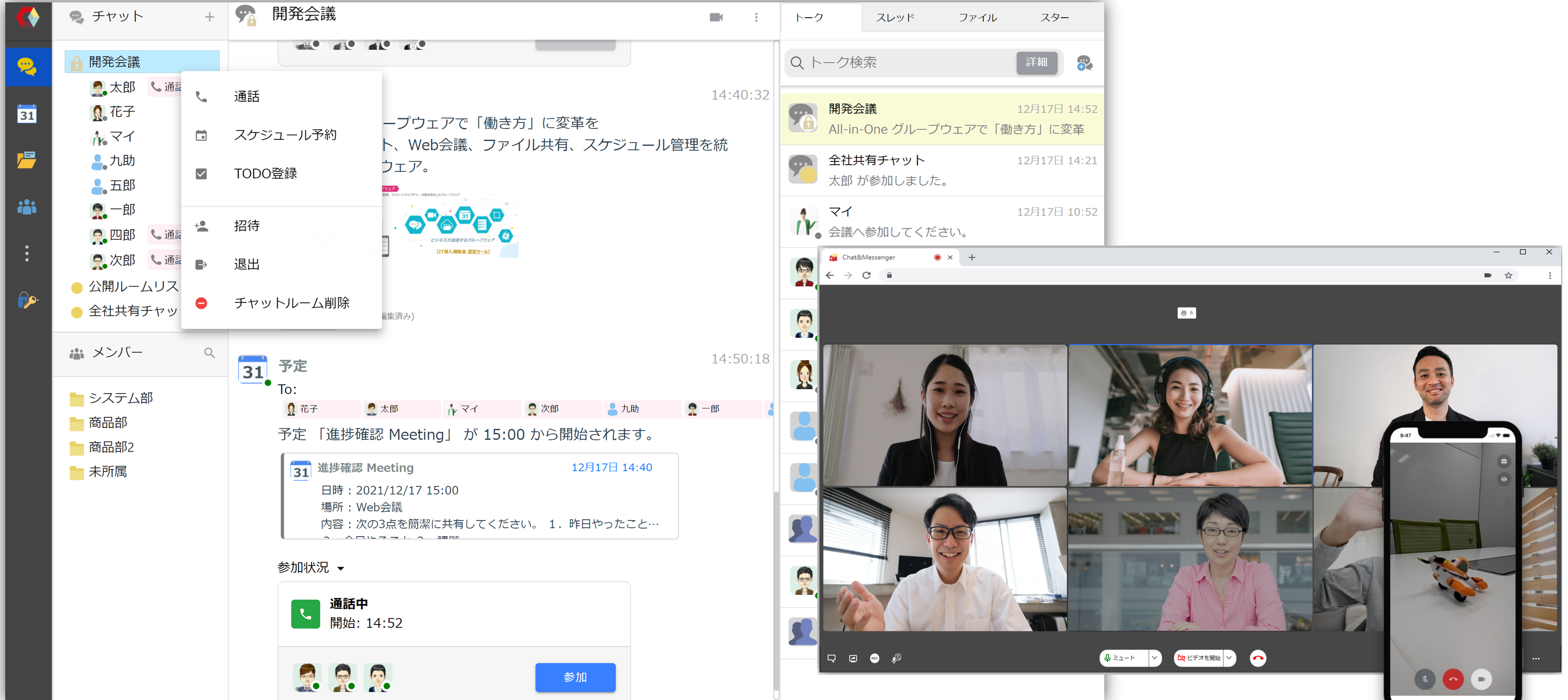


The on-premises version of Chat&Messenger is a paid plan, but compared to other companies, we offer high functionality and an overwhelmingly low price.
